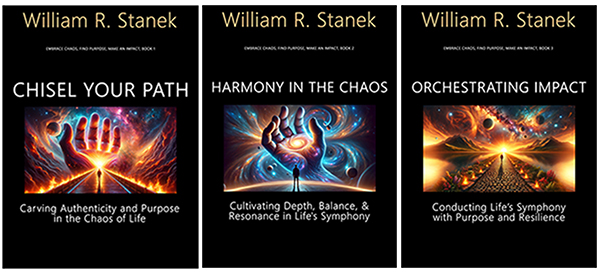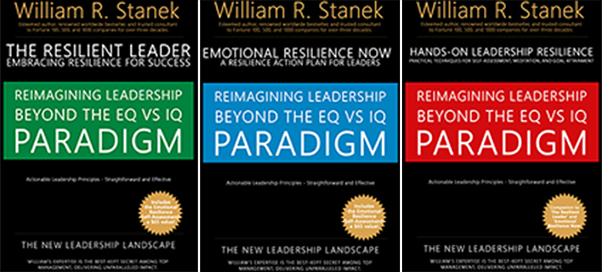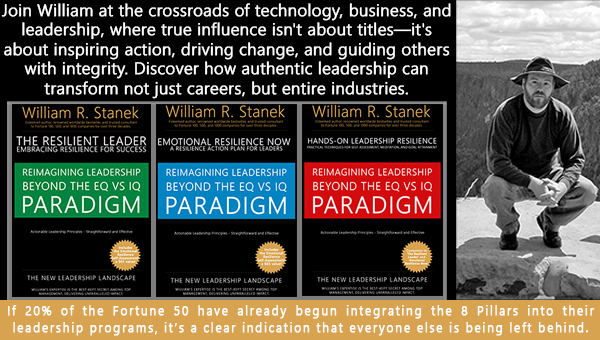

Mindful Living
In our fast-paced world, mindfulness offers a path to connection and inner peace. The "Mindful Living" series by William and Hui Cha Stanek encourages you to slow down, be present, and transform your everyday life. Whether you’re new to mindfulness or deepening your practice, these articles provide practical guidance for living with purpose, presence, and clarity. Embrace each moment with awareness, and connect more deeply with yourself and the world around you.

Transform your life with practical wisdom. Discover William Stanek's 'Living Well' series—your guide to a balanced and fulfilling life.
Discover William Stanek's Exclusive Art Collection
Explore and purchase the stunning art featured on this site. Own a piece of William Stanek's unique and captivating artwork today!
(January 28, 2025) Mindful Listening: Improving Your Relationships Through Better Communication
In a world filled with distractions, truly listening to someone can feel like a lost art. Conversations often become background noise as we juggle tasks, scroll through our phones, or think ahead to what we want to say next. But what if we slowed down, tuned in, and gave our full attention to the person in front of us? What if we practiced mindful listening—being fully present in the moment and deeply engaged in the conversation? For Hui Cha and me, mindful listening has been transformative, enhancing our communication skills and strengthening our relationships in ways we never imagined.
Mindful listening is more than just hearing words; it’s about understanding the emotions, intentions, and nuances behind those words. It’s about being present, open, and empathetic, creating a space where true connection can thrive. In this article, we’ll explore the benefits of practicing mindful listening as a daily habit, share techniques for becoming a better listener, and offer practical tips for integrating mindful listening into your relationships. Whether you’re looking to improve communication with a partner, friend, family member, or colleague, mindful listening can help you deepen your connections and enhance your relationships.
The Benefits of Practicing Mindful Listening
Mindful listening is a powerful tool for improving communication and strengthening relationships. When you listen mindfully, you’re not just hearing the words being spoken; you’re fully engaged in the conversation, paying attention to the speaker’s emotions, body language, and underlying messages. This level of attention and empathy can transform your interactions, leading to deeper understanding, greater trust, and stronger connections.
Enhancing Communication Skills
One of the most significant benefits of mindful listening is its ability to improve your communication skills. By focusing entirely on the speaker, you can better understand their message, respond more thoughtfully, and avoid misunderstandings. This leads to clearer, more effective communication, where both parties feel heard and valued.
For Hui Cha and me, mindful listening became a cornerstone of our communication. We learned that by truly listening to each other, we could avoid many of the misunderstandings and conflicts that often arise in relationships. It also allowed us to express ourselves more clearly, knowing that the other person was fully engaged and receptive to our words.
Strengthening Relationships
Mindful listening also plays a crucial role in strengthening relationships. When you listen with full attention and empathy, you create a safe and supportive environment where the other person feels valued and understood. This fosters trust, deepens connections, and enhances the overall quality of your relationships.
In our experience, practicing mindful listening brought us closer together, both as partners and as individuals. It helped us navigate difficult conversations with greater ease, resolve conflicts more effectively, and build a deeper sense of trust and intimacy. Mindful listening also improved our relationships with friends, family, and colleagues, allowing us to connect on a more meaningful level.
Building Emotional Intelligence
Mindful listening also enhances emotional intelligence—the ability to understand and manage your own emotions, as well as the emotions of others. By listening mindfully, you become more attuned to the emotional cues and underlying feelings of the speaker, which allows you to respond with greater empathy and understanding.
This increased emotional intelligence can help you navigate complex social situations, build stronger connections, and create a more supportive and compassionate environment in your relationships. For us, mindful listening was a key factor in developing greater emotional intelligence, which in turn enriched our interactions with others and strengthened our relationships.
Techniques for Practicing Mindful Listening
Mindful listening is a skill that can be developed with practice. Here are some techniques that can help you become a better listener and enhance your communication skills:
-
Give Your Full Attention:
- One of the most important aspects of mindful listening is giving your full attention to the speaker. This means putting away distractions, such as your phone or other tasks, and focusing entirely on the conversation.
- How to Practice:
- When someone is speaking to you, make a conscious effort to focus on their words, tone of voice, and body language. Avoid multitasking or letting your mind wander.
- Use eye contact to show that you’re engaged in the conversation. This signals to the speaker that you’re fully present and interested in what they’re saying.
- If you notice your mind starting to drift, gently bring your attention back to the speaker and refocus on the conversation.
-
Listen with an Open Mind:
- Mindful listening involves being open and receptive to the speaker’s message, without judgment or preconceived notions. This allows you to truly understand their perspective and respond with empathy.
- How to Practice:
- Approach each conversation with curiosity and a willingness to learn. Let go of any assumptions or biases that might cloud your understanding of the speaker’s message.
- Avoid interrupting or jumping to conclusions. Instead, allow the speaker to express their thoughts fully before responding.
- Practice non-judgmental listening by focusing on understanding the speaker’s perspective, even if you don’t agree with it. This helps create a more open and supportive environment for communication.
-
Reflect and Clarify:
- Reflecting and clarifying are essential components of mindful listening. By summarizing what the speaker has said and asking clarifying questions, you can ensure that you’ve understood their message correctly.
- How to Practice:
- After the speaker has finished expressing their thoughts, take a moment to reflect on what they’ve said. Summarize their main points in your own words to confirm your understanding.
- Ask open-ended questions to encourage further discussion and to clarify any points that may be unclear. For example, you might say, “Can you tell me more about that?” or “What did you mean when you said…?”
- Reflecting and clarifying not only helps you understand the speaker’s message more fully but also shows that you’re actively engaged in the conversation.
-
Respond with Empathy:
- Mindful listening involves responding with empathy and compassion, acknowledging the speaker’s emotions and validating their feelings.
- How to Practice:
- When responding to the speaker, acknowledge their emotions and show that you understand their perspective. Use phrases like, “I can see why you feel that way,” or “That sounds really challenging.”
- Avoid offering unsolicited advice or solutions unless the speaker asks for it. Instead, focus on providing emotional support and understanding.
- Responding with empathy helps create a deeper connection and fosters a sense of trust and support in your relationships.
Personal Story: How Mindful Listening Transformed Our Relationship
There was a time in our relationship when communication became a challenge. We were both busy with our careers and personal projects, and our conversations often felt rushed and surface-level. We found ourselves talking past each other, with misunderstandings and frustrations beginning to build.
Recognizing the need for change, we decided to incorporate mindful listening into our daily interactions. We made a conscious effort to slow down, put away distractions, and truly listen to each other. Instead of jumping to conclusions or thinking ahead to what we wanted to say, we focused on being fully present, listening with an open mind, and responding with empathy.
The impact was immediate. Our conversations became more meaningful, and we began to understand each other on a deeper level. Misunderstandings that had previously led to conflict were resolved more easily, and we felt more connected and supported in our relationship. Mindful listening didn’t just improve our communication—it strengthened our bond and deepened our connection in ways we hadn’t anticipated.
Practical Tips for Integrating Mindful Listening into Your Relationships
Practicing mindful listening as a daily habit can enhance your communication skills and strengthen your relationships. Here are some practical tips for integrating mindful listening into your interactions:
-
Start with Daily Check-Ins:
- Set aside time each day for a mindful check-in with your partner, friend, or family member. Use this time to share your thoughts and feelings and to listen deeply to each other.
- Make this check-in a routine, whether it’s during breakfast, after work, or before bed. This regular practice helps build a habit of mindful listening and strengthens your connection over time.
-
Create a Distraction-Free Environment:
- When engaging in a conversation, create a distraction-free environment where you can focus entirely on the speaker. Turn off your phone, close your laptop, and give the speaker your undivided attention.
- This focused environment not only improves your ability to listen mindfully but also shows the speaker that you value their words and are fully present in the conversation.
-
Practice Mindful Listening in All Your Relationships:
- Mindful listening isn’t just for intimate relationships; it can be practiced with friends, family, colleagues, and even strangers. Use mindful listening to enhance your communication in all areas of your life.
- By practicing mindful listening in different contexts, you’ll develop stronger communication skills and build deeper, more meaningful connections with the people around you.
-
Reflect on Your Listening Habits:
- Take time to reflect on your listening habits and identify areas where you can improve. Are there times when you tend to interrupt, judge, or get distracted? How can you bring more mindfulness to your conversations?
- Use this reflection to set intentions for your listening practice. For example, you might set a goal to listen without interrupting or to focus on understanding the speaker’s emotions.
-
Be Patient with Yourself:
- Mindful listening is a skill that takes time to develop. Be patient with yourself as you practice, and recognize that it’s okay to make mistakes or to find certain conversations challenging.
- Approach your listening practice with compassion and a growth mindset, knowing that each conversation is an opportunity to improve and deepen your connections.
Conclusion: Mindful Listening as a Path to Stronger Relationships
For Hui Cha and me, mindful listening became a vital part of our relationship, transforming the way we communicate and connect with each other. We learned that by being fully present, listening with an open mind, and responding with empathy, we could enhance our communication skills and strengthen our bond. Mindful listening allowed us to navigate challenges with greater ease, resolve conflicts more effectively, and build a deeper sense of trust and intimacy.
We believe that mindful listening is a powerful tool for anyone looking to improve their relationships, whether it’s with a partner, friend, family member, or colleague. By practicing mindful listening as a daily habit, you can enhance your communication skills, build stronger connections, and create more meaningful and fulfilling relationships.
We encourage you to explore the mindfulness techniques and tips we’ve shared and to apply them in your own life. Whether you’re seeking to improve a specific relationship or simply looking to become a better listener, mindful listening can provide you with the skills and awareness needed to communicate more effectively and to strengthen your relationships in meaningful ways.

Join William at the crossroads of technology, business, and leadership, where true influence isn't about titles - it's about inspiring action, driving change, and guiding others with integrity. Discover how authentic leadership can transform not just careers, but entire industries.
Bring Inspiration Home
Enhance your space with William Stanek's evocative art. Each piece is crafted to inspire and uplift your everyday life.

Support The Lights of Paris by Robert Stanek, William Stanek's pen name! Through vivid historical detail and deeply moving character stories, Robert takes readers on an unforgettable journey through one of history’s most transformative times.

















